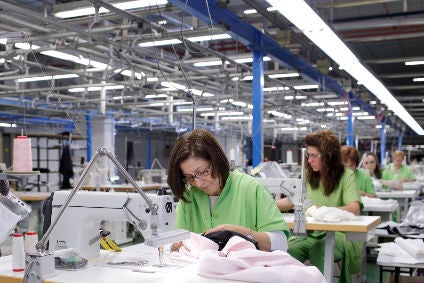
Inditex, owner of Zara and Pull & Bear brands, is to contribute over US$4m to multi-year projects with the Massachusetts Institute of Technology (MIT), which will research global sustainability initiatives and data analysis applications for the textile industry.
The Spanish retail group plans to set up two data analysis fellowships with MIT Sloan School of Management and MIT Department of Materials Science and Engineering, and will renew its annual scholarship program for MIT students at Inditex.

Discover B2B Marketing That Performs
Combine business intelligence and editorial excellence to reach engaged professionals across 36 leading media platforms.
The Inditex Operations Research and Management Fellowship Fund, within the MIT Sloan School of Management, will receive a US$1m allocation that will be used to foster research and innovation in data analysis applied to the textiles industry.
The Inditex Materials Science and Engineering Fellowship Fund within the MIT Department of Materials Science and Engineering will receive $1m to carry out research into the circular economy, logistics and supply chain management, with an aim to “pursue pioneering initiatives” in the circular economy and in the application of advanced sustainability techniques within the textiles industry.
A further $1.2m will be allocated to the Institute of Data, Systems and Society to research topics such as artificial intelligence, automated learning and data science.
The MIT-Spain Inditex Sustainability Seed Fund will receive US$450,000 to help faculty members and students conduct research into topics including new fibres, clean energy and logistics eco-efficiency. During the first round of the MIT-Spain Inditex Sustainability Seed fund, projects regarding the separation of the subsequent recycling of fibres were selected from the universities of Vigo, Granada, the Basque region, and the Polytechnic School of Valencia.

US Tariffs are shifting - will you react or anticipate?
Don’t let policy changes catch you off guard. Stay proactive with real-time data and expert analysis.
By GlobalDataThe new round of seed funding will select five new research initiatives that align with Inditex’s Global Sustainability Strategy with the aim of identifying innovative solutions in areas such as upcycling, recycling, ecological fabrics, clean energies, and manufacturing and logistics eco-efficiency, among others.





